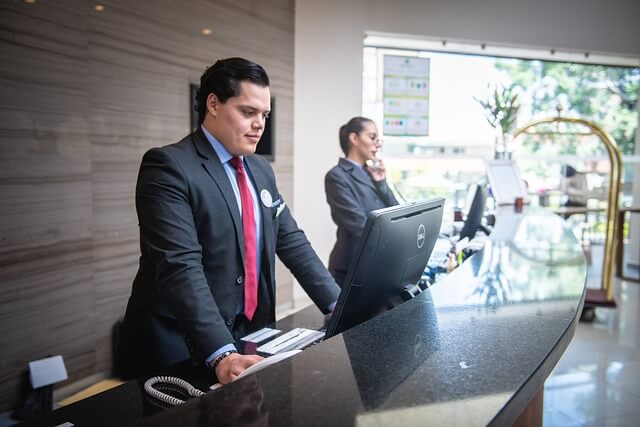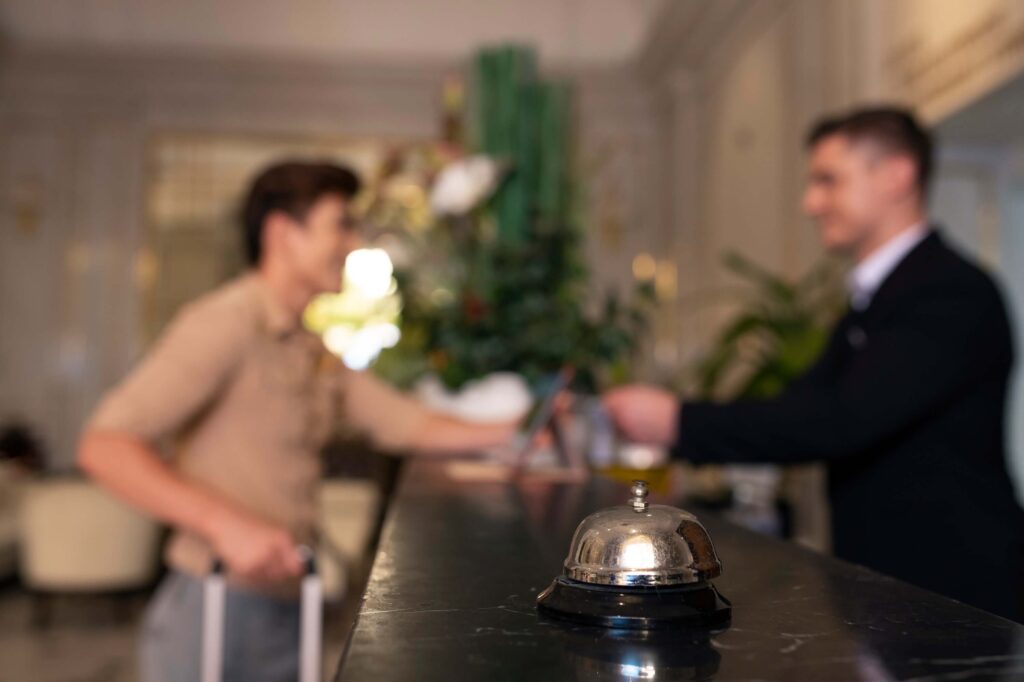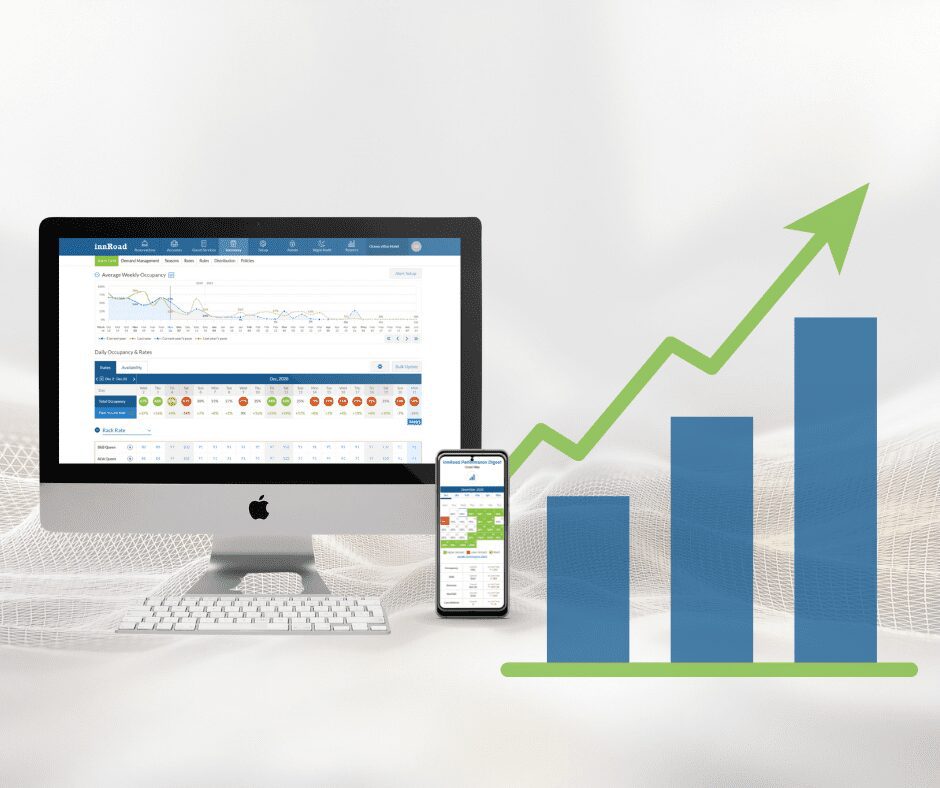Read Part 6 of 8 of our Complete Guide to Small Hotel Property Management Software to learn more about what factors to consider when it comes to choosing the right property management system in small hotels.
Jump To:
1. 11 Factors To Consider When Choosing Property Management Systems for Small Hotels
Property management systems in hotels can help owners and property managers handle a number of key functions. Small hotels in particular can profit from implementing property management system software, with a variety of features that improve or simplify many aspects of their day-to-day operations, from making bookings and managing reservations to channel distribution and payment processing.
The benefits of a property management system may be pretty clear, but choosing the right property management system for your small hotel is often far less simple, with numerous options to choose from and even more features to mull over.
In this section of the Complete Guide to Small Hotel Property Management Software, we’ll take a closer look at 10 factors to consider when choosing a small hotel PMS, including:
- Your goals
- Cloud-based vs. on-premise property management software
- Mobile accessibility
- Key features
- Ease of use
- Customer support
- Reliability
- Other software integrations
- Scalability
- Cost
- Data migration
Let’s get started.
i. Your goals
Is your goal to reduce operating costs or increase revenue? To streamline operations? To get better visibility into your property performance? Understanding what you need from your PMS is the first step in making the right software choice.
When you understand your goals, you can choose a PMS that offers key features that will help you achieve your goals without paying for features and services you don’t need.
ii. Cloud-based vs. on-premise property management system software
Cloud-based software is the new standard for property management systems in hotels, but on-premise software may still be used by larger chains or smaller hotels who adopted PMS technology early on.
Cloud-based PMS software is almost always the best choice for small hotels for a few reasons:
- Accessibility: Cloud-based property management system software is completely web-based, which means you can manage your property from any location and access all of your PMS data on any connected device with an internet browser—a key advantage for small hotel owners and managers. On-premise PMS systems, on the other hand, are locally hosted, which means your data must be stored on-site and you’ll only be able to access the software on devices with the software installed.
- Data storage: On-premise PMS software requires space for servers—something your property may not have in abundance. With a cloud-based PMS, your software provider is responsible for storing and securing your data, which means significantly lower implementation costs (and less space required), less responsibility for data security, and next to no on-site IT maintenance.
- Cost: Cloud-based online hotel management systems like innRoad are billed as a monthly subscription. Some providers offer different subscription tiers or add-ons so you can create a customized hotel PMS system that suits your needs and budget without paying for unnecessary tools or features. On the other hand, software licenses for on-premise software can be costly, especially if you need multiple licenses so you can access your hotel PMS system on multiple devices. Plus, the up-front hardware costs for your on-site servers and their maintenance can be significant as well.
- Integrations: Cloud-based PMS software often has an open API that is easy to integrate with other key systems, such as channel managers and POS systems. While on-premise hotel PMS systems can also usually be integrated with other important systems, these integrations may require additional hardware and will almost certainly require technological expertise to implement.
- Updates: With a cloud-based PMS, your software provider will automatically roll out updates, while software updates for on-premise systems are typically less frequent and may even require expensive hardware upgrades.
iii. Mobile accessibility
Let’s face it—there’s no way you can spend your whole work day behind a desk reviewing reports and managing your operations. Running a small hotel means you’ll be away from your desk often, but that doesn’t mean you can disconnect from your routine management responsibilities. If you want to be able to access your PMS on your phone from anywhere on your property, you’ll need a cloud-based PMS.
iv. Key features
Some PMS software offers a complete suite of features, while others offer a more streamlined all-in-one system that has fewer standard features alongside options to add more tools if you need them. When you have the flexibility to add the tools you need, you can create a custom PMS that meets your needs and will help you achieve your goals without paying for features you don’t need. If you don’t list your property on OTAs or you don’t offer online check-in, for example, you shouldn’t have to pay for channel management or contactless check-in features!
Property management systems in hotels should include these standard features:
- A direct booking engine that integrates seamlessly with your website and offers options to upsell perks to guests when they book
- Reservation management so you can easily manage reservations, inventory, and rates
- Task management to help organize, assign, and track tasks within your hotel, such as housekeeping and maintenance
- Revenue management tools, including automatic rate changes in response to booking activity
- Advanced reporting and analytics so you can see key information quickly
You may also want to consider these additional features for even more functionality:
- A simplified channel manager if you list your property on OTAs or GDSs so you can adjust rates, availability, and property information in your PMS and automatically sync the changes to all of your booking channels
- PCI DSS-compliant payment processing so you can manage all your payments, chargebacks, and deposits in one dashboard
- Online check-in options that can make the check-in process even more efficient by collecting key information before guests arrive
v. Ease of use
Your PMS should be intuitive and easy to use, with key information quickly accessible for every team member.
No matter how tech-savvy you are, a new system takes time to learn, especially if you have to teach yourself. Even if you are tech-inclined, you should always look for a PMS that offers dedicated implementation advisors to help with onboarding, as well as ongoing training and 24/7 support for your entire staff.
vi. Customer support
Running a small hotel is a 24/7 business, and that means you need 24/7 access to support—even if it’s in the middle of the night on a holiday. Always look for a software provider that offers 24/7/365 support both during and after implementation and onboarding.
vii. Reliability
There are no breaks or downtime when you run a small hotel—and that goes double for your property management system. Look for a reliable PMS with an average uptime as close to 100% as possible, with 24/7 free support so you can get help when you need it.
INNROAD TIP: innRoad has an uptime rating over 99%!
viii. Integration with other systems
If your all-in-one PMS has all of the features you need, you won’t need to worry about integrating your software with other systems.
In some cases however, your PMS may not include every feature you need and you may want to integrate it with external systems like your point of sale software, guest messaging, customer relationship management tools, or marketing channels like social media or email. If this sounds familiar, look for a PMS with an open API and tech support to help you set up these integrations.
innRoad directly integrates with a number of key systems, including:
- Akia guest messaging so you can communicate directly with guests who have upcoming reservations
- Quickbooks accounting so you don’t miss any important charges
- Lightspeed L Series POS for managing room charges
- Remotelock PIN code locks so you can create PIN access and enable early check-in
ix. Scalability
Will your PMS grow with you as your property grows? With new features and updates rolled out automatically and easy integration with other systems when needed, cloud-based property management system software is more scalable than on-premise software.
Even if you don’t plan to grow your business, your PMS should be able to support new technologies, innovations, and regulations as you grow and the hospitality landscape shifts.
x. Cost
Cost can be a major factor for small hotels when choosing the right PMS. Your PMS is supposed to help you save money, not cost you an arm and a leg!
To help manage the cost of your software, look for a PMS that offers a basic suite of features with options to add other tools as needed. This way, you only pay for what you need—and you won’t pay for features you won’t use.
xi. Data migration
Changing to a new property management system in your hotel doesn’t mean you should lose all of your valuable reservation data. Look for a PMS that offers free migration of all your past and future reservations to ensure you can keep operating smoothly with as little downtime as possible.
2. Checking Out
Property management systems in hotels offer small hotel owners and property managers a number of benefits, from fast and easy access to data and reduced operating costs to providing better guest experiences and increasing your revenue.
Choosing the right property management system software for your small hotel can be challenging and time consuming, with seemingly endless factors to consider, such as:
- Your goals
- Cloud-based vs. on-premise property management software
- Mobile accessibility
- Key features
- Ease of use
- Customer support
- Reliability
- Other software integrations
- Scalability
- Cost
- Data migration
Ultimately, the right PMS for your small hotel will depend on your goals, how you want to access your PMS, and the features you need.
Discover innRoad's Small Hotel PMS
Keep Reading

What Is A Small Hotel Property Management System?

Types of Hotel PMS for Small Hotels

How Does Property Management System Software for Small Hotels Work?

